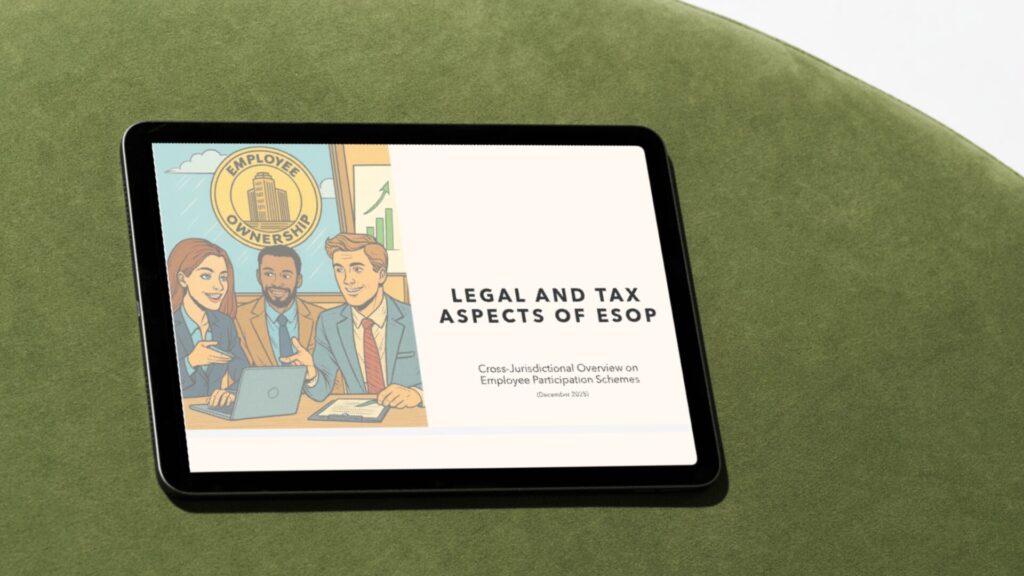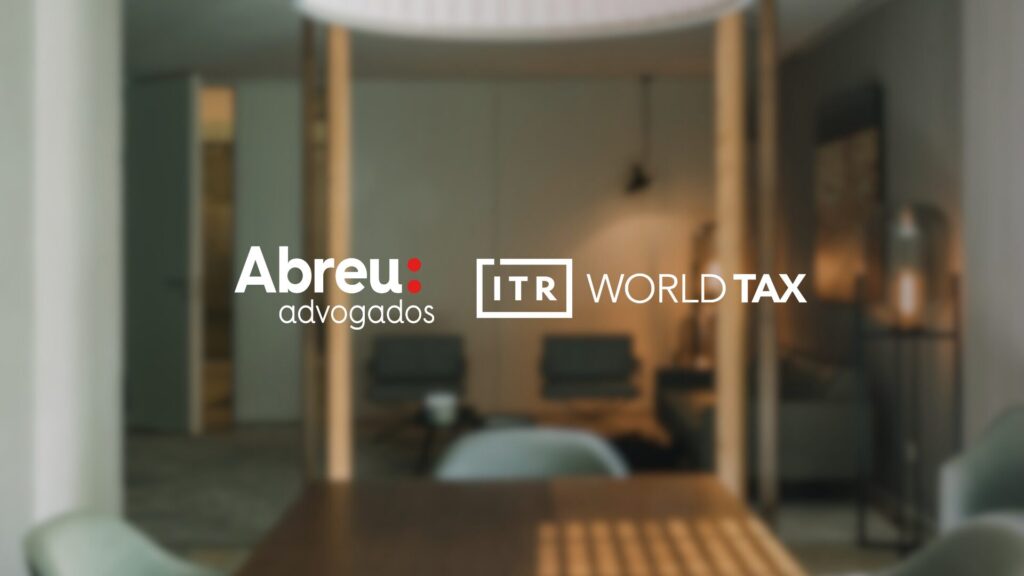Turning Equity into Real Rewards: Portugal’s Startup Share Incentive
Introduction
Portugal’s startup ecosystem has matured quickly, propelled by policies that prioritise innovation and international competitiveness. Yet one problem persists: how to attract and retain high-calibre talent without draining precious cash.
In response, the legislature amended the Tax Benefits Code and created a special tax regime for equity-based remuneration in startups, covering stock options, RSUs and analogous awards. The 2024 State Budget then fine-tuned the framework and aligned it with the Personal Income Tax Code. The result is a clearer, more competitive regime that shifts taxation to a moment that better matches value creation.
The standard regime: “tax now, cash later”
Under the standard personal income tax rules, everything an employee receives for their work – in cash or in kind – falls within Category A (employment income) and is taxed at progressive rates plus solidarity surcharge, if applicable (which in total can reach 53%).
In equity plans, the taxable event typically occurs when the employee first obtains an economic benefit. In practice, that is usually the exercise of the option, or the vesting and delivery of shares at a discount (or for free). The taxable amount is the market value at that time minus what the employee paid, if any, including any option premium.
The practical problem is obvious: employees face immediate tax at exercise without liquidity to fund the tax bill.
If the employee later sells the shares, any further profit (sale price minus the value previously taxed as employment income, and thus recognised as acquisition cost) is taxed as a capital gain (Category G).
For startups, the optics can be equally challenging – equity is meant to inspire long-term alignment, not trigger an immediate tax bill.
The startup regime: deferral, reduction, and clarity
The special regime addresses that mismatch with three levers. First, it defers taxation to a more natural point in time. Second, it halves the taxable base. Third, it sets objective eligibility criteria, so companies and employees know where they stand.
Under this regime, the benefit is not taxed at exercise or delivery. Instead, tax is triggered by the first of three events: the disposal of the shares or equivalent rights, the loss of Portuguese tax residence, or the free transfer of those assets. A minimum 12-month holding period applies to the underlying rights. When the trigger occurs and the conditions are met, only 50% of the gain is considered for Personal Income Tax purposes, and that reduced base is then taxed at a special 28% rate. In plain terms: later taxation, on a smaller base, at a clear flat rate.
Eligibility – Issuer, plan and beneficiary
The regime applies to options and equivalent rights within the meaning of the Personal Income Tax Code, which captures the standard architecture of stock options and RSU-style awards. On the issuer side, the company must meet at least one test in the year before the plan’s approval (or in its first year of activity): formal startup recognition; qualification as a micro, small, or medium-sized enterprise (or small-mid cap); or the pursuit of innovative activities evidenced by R&D, patents, designs/models or software representing at least 10% of expenditure or turnover. Startup status can be evidenced through digital certification (Startup Portugal), while the innovation benchmark follows the definitions in the Investment Tax Code.
On the beneficiary side, the regime is targeted at talent rather than controllers. It excludes individuals who, directly or indirectly, hold 20% or more of the issuer’s capital or voting rights. There is, however, an important nuance: the exclusion does not apply where the entity qualified as a startup or micro/small enterprise in the previous year. This preserves the incentive in early-stage contexts where founders and key employees often hold meaningful stakes.
Mobility and the “exit” trigger
International mobility is common in technology companies, so the regime contemplates a specific exit scenario. If the trigger is the loss of Portuguese tax residence, the law grants a one-time partial exemption capped at 20×IAS (Social Support Index), with the remainder considered for the rate calculation on the taxpayer’s other income. The aim is to soften cliff-edge outcomes when an employee relocates, without undermining the principle that accrued economic gains should be taxed when they are effectively realised or taken abroad.
For employees, the regime aligns taxation with the moment of liquidity and tempers the bill through the 50% base reduction and 28% rate. Equity finally looks like a reward that arrives when it can be financed. For startups and scale-ups, the rules make it easier to build compensation packages that compete internationally while preserving cash for product, hiring and go-to-market. Just as important, the framework provides predictability: clear triggers, clear rates, clear eligibility.
Implementation in practice
Executing well is largely about design and records. Companies should verify eligibility before approving a plan, secure the relevant certifications or documentation, and ensure plan rules reflect the 12-month holding and the tax triggers (sale, exit, free transfer). HR, legal and payroll must coordinate so the taxable moment is captured once—on the trigger, not prematurely at vesting or exercise. Cap tables should be monitored over time to keep beneficiaries within the sub-20% threshold. And for mobile employees, it is prudent to plan ahead for the potential exit trigger and to apply the 20× IAS relief correctly.
The regime does not eliminate market risk: share values can fall, reducing the ultimate benefit. Nor does it remove the need for competitive cash pay. But it does move Portuguese practice markedly closer to what talent expects in global tech hubs: equity that taxes later, when value becomes real.
Conclusion
Under the general rules, equity in Portugal too often meant tax now, cash later. The startup share incentive rebalances that equation by taxing later, on half the gain, at a clear 28% rate, provided objective conditions are met. For employees, that brings fairness and liquidity; for companies, it turns equity into a serious tool for attraction, retention and long-term alignment.
There are boundaries—eligibility thresholds, holding periods, ownership limits—and careful implementation is essential. Even so, the regime is a meaningful step in modernising how Portugal treats startup equity. In a competitive market for talent, it helps convert stock options into what they were always meant to be: real rewards, at the right time.







































